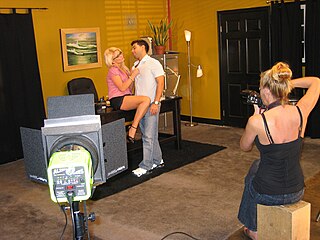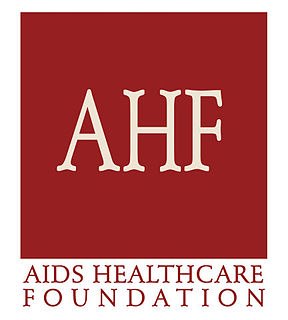| Proposition 60 | ||||||||||||||||||||||
|---|---|---|---|---|---|---|---|---|---|---|---|---|---|---|---|---|---|---|---|---|---|---|
| Adult Film Condom Requirements | ||||||||||||||||||||||
| ||||||||||||||||||||||
| Source: California Secretary of State [1] | ||||||||||||||||||||||
Proposition 60 was a California ballot proposition on the November 8, 2016 ballot which would have allowed the California Occupational Safety and Health Administration (Cal/OSHA) to prosecute an enforcement action anytime a condom is not visible in a pornographic film. [2] The proposition failed to pass. [3]

In California, a ballot proposition can be a referendum or an initiative measure that is submitted to the electorate for a direct decision or direct vote. If passed, it can alter one or more of the articles of the Constitution of California, one or more of the 29 California Codes, or another law in the California Statutes by clarifying current or adding statute(s) or removing current statute(s).

A condom is a sheath-shaped barrier device, used during sexual intercourse to reduce the probability of pregnancy or a sexually transmitted infection (STI). There are both male and female condoms. With proper use—and use at every act of intercourse—women whose partners use male condoms experience a 2% per-year pregnancy rate. With typical use the rate of pregnancy is 18% per-year. Their use greatly decreases the risk of gonorrhea, chlamydia, trichomoniasis, hepatitis B, and HIV/AIDS. They also to a lesser extent protect against genital herpes, human papillomavirus (HPV), and syphilis.

Pornographic films, or sex films, are films that present sexually explicit subject matter for the purpose of sexual arousal and erotic satisfaction of the viewer. Pornographic films present sexual fantasies and usually include erotically stimulating material such as nudity and depictions of sexual intercourse. A distinction is sometimes made between "erotic" films and "pornographic" films on the basis that the latter contain more explicit sexuality, and focus more on arousal than storytelling, but the distinction is highly subjective.
Proposition 60 would have allowed any California resident to sue a pornographer and obtain their personal information. Frivolous law suits and actor safety were a major concern, as well as millions of taxpayer dollars it would cost to enforce. [2]
Enforcement of Proposition 60 was predicted to cost more than $1 million annually. [4] State and local governments were predicted to lose tens of millions of dollars in tax revenue per year if the industry left the state. [4]
If the state decided not to defend Proposition 60’s constitutionality in court, the measure would have empowered its sole sponsor, Michael Weinstein of the AIDS Healthcare Foundation, to defend the measure himself. [5] Weinstein’s legal expenses would have been paid by the state and he could only be removed by a majority vote of both houses of the California State Legislature. [5] These provisions were included in response to the United States Supreme Court ruling in Hollingsworth v. Perry that only state employees have standing to defend state ballot propositions in federal court.

AIDS Healthcare Foundation (AHF) is a Los Angeles-based global nonprofit provider of HIV prevention services, testing, and healthcare for HIV patients. AHF currently claims to provide medical care and services to more than 1 million individuals in 43 countries worldwide.

The California State Legislature is a bicameral legislature consisting of a lower house, the California State Assembly, with 80 members; and an upper house, the California State Senate, with 40 members. Both houses of the Legislature convene at the California State Capitol in Sacramento. The California State Legislature is one of just ten full-time state legislatures in the United States.
Hollingsworth v. Perry were a series of United States federal court cases that legalized same-sex marriage in the State of California. The case began in 2009 in the U.S. District Court for the Northern District of California, which found that banning same-sex marriage violates equal protection under the law. This decision overturned ballot initiative Proposition 8, which had banned same-sex marriage. After the State of California refused to defend Proposition 8, the official sponsors of Proposition 8 intervened and appealed to the Supreme Court. The case was litigated during the governorships of both Arnold Schwarzenegger and Jerry Brown, and was thus known as Perry v. Schwarzenegger and Perry v. Brown, respectively. As Hollingsworth v. Perry, it eventually reached the United States Supreme Court, which held that, in line with prior precedent, the official sponsors of a ballot initiative measure did not have Article III standing to appeal an adverse federal court ruling when the state refused to do so.
Proposition 60 was similar to Measure B, passed by Los Angeles voters in 2012, which resulted in a large drop in permit filings for pornography shoots. [2] Proposition 60 would have required adult film performers to use condoms during filming of sexual intercourse, and required producers to pay for performer vaccinations, testing, and medical examinations, and to post the condom requirement at film sites. [6] Additionally, producers would have been required to renew their adult film licenses every two years as well as contact Cal/OSHA if and when a film was being made. [7]
Measure B, also known as the County of Los Angeles Safer Sex In the Adult Film Industry Act, is the law that requires the use of condoms in all vaginal and anal sex scenes in pornography productions filmed in Los Angeles County, California. The measure also requires porn production companies to obtain a health permit prior to production and to post the permit and a notice to performers regarding condom use during production. All individuals involved will also be required to pay $1,600 every 2 years.
The statewide California pornography industry employs 2,000 people. [5] Pornography in California is estimated to be a $9 billion industry. [4]
California law already requires all workers to use protection against infectious bodily fluids, and the California Occupational Safety and Health Administration has already interpreted the statute to require porn actors to wear condoms. [2] In early 2016 rulemaking, Cal/OSHA drafted detailed regulation requiring condom use but it was withdrawn after widespread industry criticism. [2]
Proponents spent $4.6 million fighting for the measure, all of it from the AIDS Healthcare Foundation. [2]
Opponents spent $433,614, with the top donor being Wicked Pictures. [2] Other top donors included Cybernet Entertainment and the California Democratic Party. [2] The editorial boards of the Los Angeles Times , [8] the San Francisco Chronicle , [9] and the Sacramento Bee opposed the measure. [5]
The proposition failed, with nearly 54% against and 46% in favor. [3]









